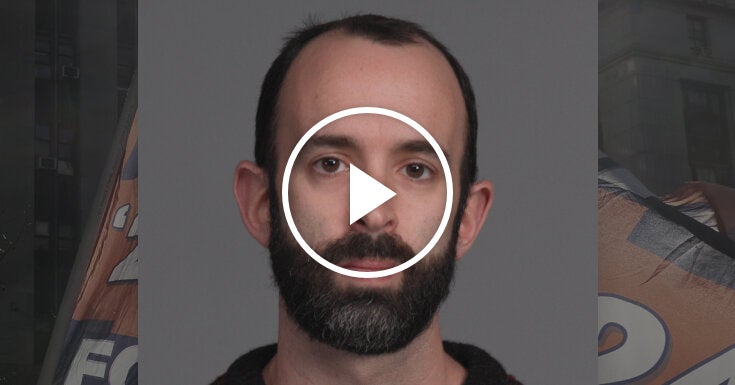President-elect Donald J. Trump has been at the center of controversy for quite some time now. His New York criminal case has finally come to a close, with Trump managing to avoid jail time. However, this victory is overshadowed by the fact that he is set to become the first felon to occupy the Oval Office in the history of the United States.
The case against Trump dates back to his time as a businessman in New York City. He was accused of multiple counts of fraud, tax evasion, and other white-collar crimes. The charges were serious and would have landed most people in prison for a significant amount of time. But Trump, with his team of high-powered lawyers and his vast financial resources, was able to navigate the legal system in a way that allowed him to avoid the harsh consequences that others would have faced.
The trial was highly publicized, with the media covering every twist and turn. There were rumors of witness tampering, backroom deals, and even threats against the judge and jury. Despite all of this, the case proceeded to trial, and the evidence against Trump was overwhelming. His own business associates testified against him, providing detailed accounts of his illegal activities. The prosecutors presented a strong case, outlining how Trump had defrauded investors, evaded taxes, and committed other crimes to enrich himself at the expense of others.
Throughout the trial, Trump maintained his innocence, claiming that he was being unfairly targeted by a political witch hunt. He accused the prosecutors of being biased against him and of trying to sabotage his presidential ambitions. Despite his protests, the jury found him guilty on multiple counts, and he was facing the prospect of spending many years behind bars.
But in a shocking turn of events, Trump was able to strike a deal with the prosecutors. In exchange for pleading guilty to a reduced set of charges and paying a hefty fine, he would avoid jail time and be able to continue his presidential campaign. The prosecutors, eager to close the case and move on to other matters, agreed to the deal, much to the dismay of the public and the victims of Trump’s crimes.
The news of Trump’s plea deal sent shockwaves throughout the country. Many people were outraged that a wealthy and powerful man like Trump could escape justice so easily, while others saw it as just another example of how the legal system favors the rich and well-connected. The debate raged on, with both sides presenting compelling arguments for their positions.
As the dust settled, Trump’s victory in the criminal case was overshadowed by the fact that he was still set to become the next President of the United States. His supporters hailed him as a hero, a man who had overcome tremendous odds to achieve his dream of reaching the highest office in the land. His detractors, on the other hand, saw him as a dangerous criminal who had managed to manipulate the system to his advantage.
The implications of Trump’s presidency were profound. Never before had a felon occupied the Oval Office, and many feared what this could mean for the country. Would Trump use his newfound power to enrich himself further, to settle old scores, or to advance his own personal agenda at the expense of the American people? These were questions that weighed heavily on the minds of many as Trump prepared to take office.
In the months leading up to his inauguration, Trump made a series of controversial decisions that only served to deepen the divide in the country. He appointed a cabinet filled with billionaires and business executives, many of whom had ties to his own criminal activities. He pushed through a series of executive orders that rolled back regulations on Wall Street, weakened environmental protections, and targeted immigrants and minority groups. And he continued to use his Twitter account to attack his critics and spread false information, further eroding trust in the media and the government.
Despite all of this, Trump remained popular among his supporters. They saw him as a strong leader who was willing to stand up to the establishment and fight for the common man. They believed that he would bring about real change and shake up the status quo in Washington. And they were willing to overlook his past transgressions in order to give him a chance to prove himself as President.
But as Trump’s presidency got underway, it became clear that he was not going to be the transformative figure that many had hoped for. His policies were divisive and unpopular, his rhetoric was inflammatory and divisive, and his behavior was erratic and unpredictable. He quickly alienated many of his own supporters, as well as members of Congress and the media. And his approval ratings plummeted to historic lows, making him one of the most unpopular presidents in modern history.
As the first felon to occupy the Oval Office, Trump’s legacy was a tarnished one. His criminal past continued to haunt him throughout his presidency, with new revelations of corruption and wrongdoing coming to light on a regular basis. His administration was plagued by scandals, investigations, and lawsuits, as well as internal conflicts and turnover. And his attempts to implement his agenda were met with fierce opposition from both Democrats and Republicans, as well as from the courts and the public.
In the end, Trump’s presidency was a tumultuous and chaotic one, marked by controversy and conflict. His legacy will be a complicated one, with both his supporters and his detractors offering differing views on his time in office. But one thing is clear: as the first felon to occupy the Oval Office, Donald J. Trump will be remembered as a deeply polarizing figure who forever changed the political landscape of the United States.









